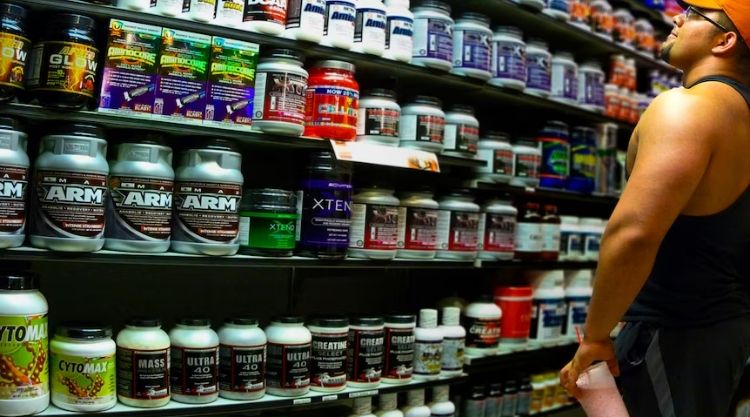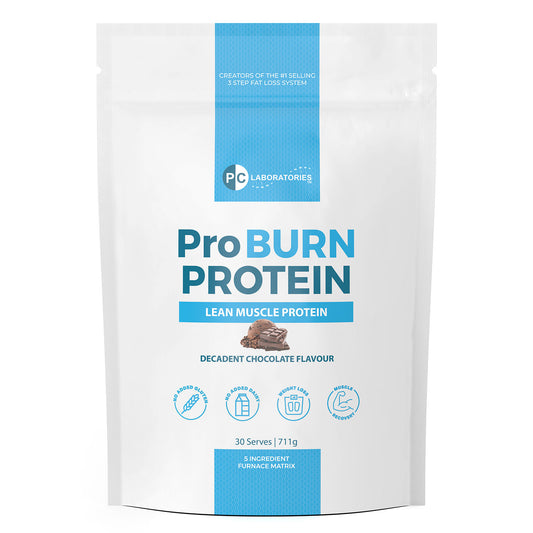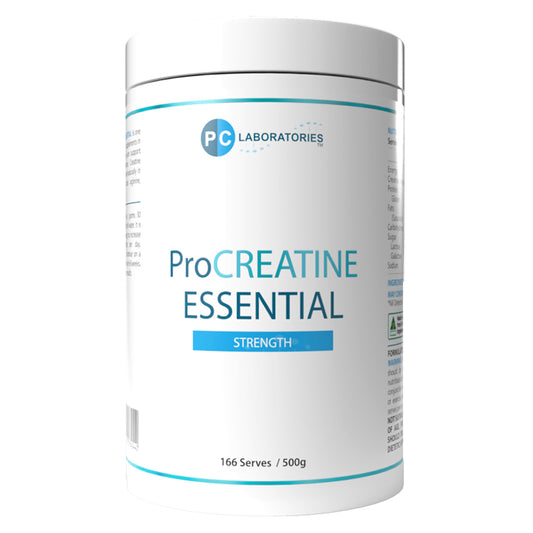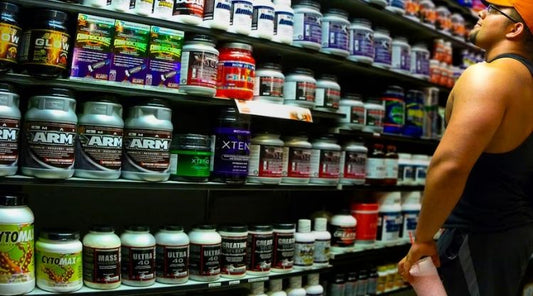Muscle recovery is a fundamental aspect of athletic performance and overall physical well-being. Whether engaging in high-intensity resistance training, endurance exercises, or recreational fitness activities, the body undergoes significant physiological stress that necessitates an effective recovery process. Without adequate recovery, individuals may experience prolonged muscle soreness, diminished performance, and an increased risk of injury. Understanding the biological mechanisms underlying muscle repair is essential for optimizing post-exercise recovery and enhancing long-term muscle adaptation.
At the core of muscle recovery is a complex interplay of physiological processes, including protein synthesis, inflammation control, and nutrient replenishment. These mechanisms work in tandem to repair exercise-induced microtears in muscle fibers, restore energy stores, and prepare the body for subsequent physical exertion. While proper nutrition, hydration, and rest play critical roles in facilitating recovery, supplementation has emerged as a valuable strategy to accelerate the process and improve overall muscle function.
Among the various supplements available, Glutamine & Creatine have gained significant attention for it's potential to enhance muscle repair, reduce exercise-induced muscle damage, and support immune function during periods of intense training. This article delves into the science behind muscle recovery, examining the key physiological processes involved and exploring how supplements, particularly ProGlutamine Essential can contribute to a more efficient and effective recovery regimen.
Understanding the Muscle Recovery Process
The Physiological Impact of Exercise on Muscles
During physical exercise, particularly resistance training and high-intensity endurance activities, muscle fibers experience microscopic damage known as exercise-induced muscle damage (EIMD). This process is a natural consequence of mechanical stress placed on muscle tissue, leading to the disruption of muscle proteins, inflammation, and temporary reductions in muscular strength. EIMD is particularly pronounced following eccentric contractions—movements in which the muscle lengthens under tension, such as during the downward phase of a squat or the controlled lowering of a weight.
The body's response to this damage initiates a cascade of biological processes aimed at repairing and strengthening the affected tissues. The inflammatory response is one of the first mechanisms to be activated, involving the release of cytokines and other signaling molecules that recruit immune cells to the site of injury. While inflammation is often perceived negatively, it is an essential component of muscle repair, facilitating the removal of damaged proteins and stimulating the production of new muscle fibers.
Another crucial aspect of the muscle recovery process is protein synthesis, which involves the creation of new muscle proteins to replace damaged structures. This process is regulated by the mammalian target of rapamycin (mTOR) signaling pathway, which responds to various stimuli, including nutrient availability, mechanical loading, and hormonal signaling. Adequate protein intake, particularly in the form of essential amino acids, plays a critical role in maximizing muscle protein synthesis and accelerating the recovery process.
Key Phases of Muscle Recovery
Muscle recovery occurs in distinct phases, each characterized by specific physiological responses aimed at restoring muscle function and promoting adaptation to training stimuli.
Immediate Recovery Phase (0–6 Hours Post-Exercise)
The immediate recovery phase begins as soon as exercise ceases and is primarily characterized by a rapid increase in blood flow to the affected muscles. This enhanced circulation serves several important functions, including:
- Delivery of oxygen and nutrients to support cellular repair processes.
- Removal of metabolic byproducts, such as lactic acid and hydrogen ions, which contribute to muscle fatigue.
- Initiation of the inflammatory response, which signals the need for tissue repair.
During this phase, the body prioritizes restoring muscle homeostasis by replenishing adenosine triphosphate (ATP) stores, stabilizing pH levels, and initiating protein synthesis. Consuming a balanced post-workout meal containing carbohydrates and protein can enhance this process by providing the necessary substrates for glycogen replenishment and muscle repair.
Short-Term Recovery Phase (6–48 Hours Post-Exercise)
The short-term recovery phase is characterized by continued muscle protein synthesis and cellular repair. Within this timeframe:
- Satellite cells, which are specialized muscle stem cells, become activated and contribute to muscle fiber regeneration.
- The production of new contractile proteins, such as actin and myosin, increases.
- The immune system works to reduce inflammation and remove cellular debris from the damaged tissue.
One of the most common symptoms experienced during this phase is delayed onset muscle soreness (DOMS), which typically peaks between 24 and 48 hours post-exercise. DOMS is believed to result from inflammatory processes and mechanical stress placed on muscle fibers. While mild soreness is a normal part of adaptation, excessive inflammation can impair recovery and delay performance improvements.
Long-Term Recovery Phase (48 Hours and Beyond)
Beyond the initial 48-hour period, the body continues its adaptive response to exercise, strengthening muscle fibers to better withstand future stressors. This phase is essential for long-term training progress and includes:
- Structural remodeling of muscle tissue, leading to increased strength and endurance.
- Neural adaptations that enhance motor unit recruitment and coordination.
- Hormonal regulation, particularly involving growth hormone and testosterone, which further support muscle growth.
Factors such as sleep quality, nutrition, hydration, and supplementation play a crucial role in optimizing long-term recovery. Ensuring that these variables are well-managed can lead to enhanced muscle function, reduced risk of overtraining, and improved athletic performance over time.
Factors Affecting Muscle Recovery
Muscle recovery is influenced by a variety of internal and external factors, all of which play a crucial role in determining how efficiently the body repairs itself after exercise.
While the body's natural ability to heal is remarkable, optimizing recovery requires a combination of proper nutrition, hydration, rest, and other key lifestyle choices.
By understanding these factors, individuals can take a proactive approach to improving post-workout recovery and enhancing overall athletic performance.
Nutrition & Hydration: The Foundation of Recovery
One of the most critical factors influencing muscle recovery is proper nutrition. After exercise, the body requires essential nutrients to repair damaged muscle fibers, replenish glycogen stores, and support the immune system. Two macronutrients are particularly important for recovery:
- Protein: Essential for muscle protein synthesis, protein provides the building blocks needed to repair and rebuild muscle tissue. Consuming high-quality protein sources such as lean meats, eggs, dairy, legumes, or protein supplements within 30–60 minutes post-exercise can maximize muscle repair.
- Carbohydrates: Carbohydrates play a key role in replenishing glycogen stores, which are depleted during exercise. Complex carbohydrates such as whole grains, fruits, and vegetables provide a steady release of energy to support recovery.
Hydration is equally important, as water is essential for transporting nutrients, removing waste products, and regulating body temperature.
Dehydration can slow down the recovery process and contribute to muscle cramps, fatigue, and impaired performance. For individuals engaging in prolonged or intense exercise, electrolyte-rich drinks can help restore sodium, potassium, and magnesium levels, which are lost through sweat.
Sleep & Rest: The Body’s Natural Recovery Mechanism
Sleep is one of the most underrated aspects of muscle recovery. During deep sleep, the body undergoes crucial physiological processes that aid in repair and growth. The production of human growth hormone (HGH) is significantly elevated during sleep, which promotes tissue regeneration and muscle recovery.
Insufficient sleep has been linked to increased inflammation, higher levels of the stress hormone cortisol, and decreased muscle protein synthesis. To optimize recovery, aim for 7–9 hours of quality sleep per night and maintain a consistent sleep schedule. Creating a relaxing bedtime routine, reducing screen time before bed, and ensuring a comfortable sleeping environment can further enhance sleep quality and, consequently, muscle recovery.
In addition to sleep, strategic rest days are necessary to prevent overtraining. While consistent exercise is essential for progress, excessive training without proper recovery can lead to muscle fatigue, decreased performance, and a higher risk of injury.
Incorporating active recovery—such as light stretching, yoga, or walking—on rest days can improve circulation and promote faster healing.
Active Recovery vs. Complete Rest: Finding the Right Balance
There is often debate between the benefits of active recovery and complete rest, but both play important roles in the muscle recovery process.
- Active Recovery: Engaging in low-intensity movement after intense exercise can increase blood flow, reduce muscle stiffness, and facilitate nutrient delivery to recovering muscles. Activities such as light jogging, swimming, cycling, or mobility exercises can enhance recovery without overstraining the muscles.
- Complete Rest: In cases of extreme fatigue, injury, or overtraining, full rest days allow the body to fully repair muscle fibers and replenish energy stores. Listening to your body and recognizing when to take a complete break is essential for long-term progress.
A well-balanced training program should include both active recovery sessions and full rest days to optimize muscle healing and prevent burnout.
Individual Factors: How Genetics, Age, and Fitness Level Impact Recovery
While general recovery principles apply to everyone, individual factors such as genetics, age, and fitness level can influence how quickly a person recovers from exercise.
- Age: As individuals age, muscle recovery slows down due to a natural decline in growth hormone and testosterone levels. This makes proper nutrition, hydration, and rest even more essential for older athletes or fitness enthusiasts.
- Fitness Level: Well-conditioned individuals tend to recover faster than beginners, as their bodies have adapted to the demands of exercise over time. However, beginners should prioritize gradual progression to avoid excessive muscle damage.
- Genetics: Genetic factors influence everything from muscle fiber composition to metabolism and inflammation response. While some individuals naturally recover faster, others may need additional recovery strategies such as targeted supplementation and optimized sleep habits.
Understanding these individual differences can help tailor recovery strategies to meet specific needs and ensure consistent performance improvements over time.
The Role of Supplements in Muscle Recovery
While proper nutrition, rest, and hydration form the foundation of effective muscle recovery, supplements can play a significant role in enhancing the repair process, reducing muscle soreness, and optimizing overall performance. By providing essential nutrients that support muscle function and recovery, supplementation helps bridge nutritional gaps and accelerates the body's natural healing mechanisms. Among the various recovery aids available, glutamine stands out as a key amino acid with proven benefits in muscle repair and immune support.
This section explores the importance of supplementation in muscle recovery, with a particular focus on ProGlutamine Essential and other scientifically backed recovery aids.
Why Supplements Matter in Muscle Recovery
During intense physical activity, the body experiences increased metabolic demands, leading to nutrient depletion, muscle tissue breakdown, and inflammation.
While a well-balanced diet can provide many of the necessary nutrients, supplements offer a convenient and targeted approach to replenishing essential compounds required for optimal recovery.
Some key benefits of using supplements for muscle recovery include:
Reducing muscle breakdown – Supports protein synthesis and muscle tissue repair.
Minimizing inflammation – Helps alleviate post-exercise soreness and fatigue.
Enhancing glycogen replenishment – Restores energy stores for improved endurance.
Supporting immune function – Strengthens immunity, which can be compromised by intense training.
Among the many supplements available, glutamine has gained particular attention for its ability to accelerate muscle recovery and promote overall well-being.
The Science Behind Glutamine for Muscle Recovery
What is Glutamine?
Glutamine is a conditionally essential amino acid that plays a crucial role in muscle repair, immune function, and gut health. While the body naturally produces glutamine, intense exercise depletes its levels, making supplementation beneficial for recovery.
How Does Glutamine Aid Muscle Repair?
- Reduces Muscle Breakdown – After strenuous workouts, the body enters a catabolic state, breaking down muscle proteins for energy. Glutamine supplementation helps counteract this process, preserving lean muscle mass.
- Speeds Up Muscle Tissue Repair – Glutamine supports muscle protein synthesis, ensuring that damaged fibers are effectively repaired and strengthened.
- Alleviates Exercise-Induced Inflammation – By modulating the immune response, glutamine helps reduce inflammation and post-exercise soreness (DOMS).
- Enhances Immune System Function – Intense training can temporarily suppress the immune system, making athletes more susceptible to illness. Glutamine supports immune cell production, reducing the risk of infections and fatigue.
Why Choose Glutamine?
ProGlutamine Essential is a high-quality glutamine supplement designed to optimize muscle recovery and support overall health. It offers:
Pure and effective glutamine formulation for maximum absorption.
Enhanced muscle recovery by promoting protein synthesis and reducing soreness.
Immune-boosting properties to keep athletes performing at their best.
For individuals looking to speed up recovery, reduce fatigue, and enhance endurance, incorporating ProGlutamine Essential into their post-workout routine can be a game-changer.
Other Effective Supplements for Muscle Recovery
While glutamine is a powerful recovery aid, several other supplements can further enhance post-workout healing and performance:
1. Branched-Chain Amino Acids (BCAAs)
BCAAs—leucine, isoleucine, and valine—are essential amino acids that play a vital role in:
🔹 Stimulating muscle protein synthesis for faster recovery.
🔹 Reducing muscle soreness and fatigue after intense workouts.
🔹 Preventing muscle breakdown during prolonged exercise.
Creatine is widely known for its ability to:
🔹 Replenish ATP (energy) stores, improving strength and endurance.
🔹 Accelerate muscle recovery by reducing oxidative stress.
🔹 Enhance lean muscle growth over time.
Omega-3s, commonly found in fish oil, provide anti-inflammatory benefits that:
🔹 Reduce muscle soreness and stiffness.
🔹 Improve joint health for better mobility.
🔹 Support cardiovascular health, which is crucial for endurance athletes.
4. Magnesium
Magnesium is an essential mineral that:
🔹 Aids muscle relaxation and prevents cramps.
🔹 Supports energy production and reduces fatigue.
🔹 Enhances sleep quality, which is vital for recovery.
Wrapping up This Brain Workout
Muscle recovery is a critical component of overall fitness and athletic performance. Whether you are an elite athlete, a weekend warrior, or someone simply striving to maintain an active lifestyle, understanding and optimizing the recovery process can significantly impact your progress, performance, and long-term well-being.
By recognizing the key physiological processes behind muscle repair, individuals can implement effective recovery strategies, including proper nutrition, hydration, sleep, and rest. Supplements such as glutamine, BCAAs, creatine, and omega-3 fatty acids provide additional support by reducing muscle breakdown, enhancing protein synthesis, and minimizing inflammation—all of which contribute to faster recovery and improved performance. Among these, ProGlutamine Essential stands out as a valuable supplement for those seeking to maximize muscle repair, support immune function, and maintain training consistency.
Ultimately, muscle recovery is not just about bouncing back from a tough workout—it’s about preparing your body to adapt, grow stronger, and perform at its best in the long run. By incorporating scientifically backed recovery strategies and high-quality supplements, you can optimize your recovery process, reduce the risk of injury, and achieve your fitness goals more efficiently.
Prioritizing recovery is just as important as training itself. By giving your body the tools it needs to heal and adapt, you set yourself up for continuous progress, peak performance, and long-term success in your fitness journey.








